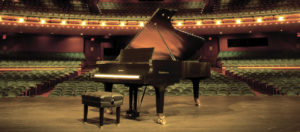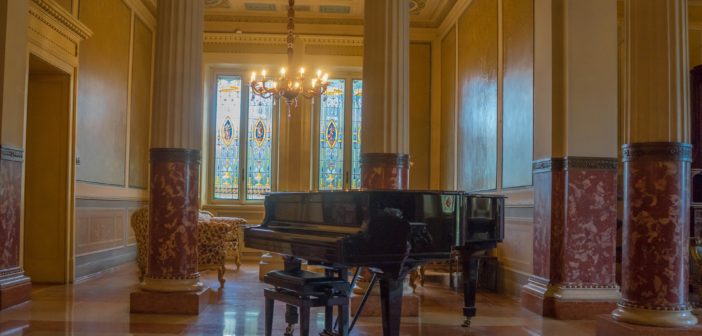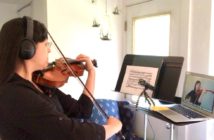Pianos do not last forever, as a pianist you need to follow some important steps in order to keep them ready to produce the best music.
It is said that music is the language of the universe. Therefore, musicians are the bridge between creativity and communication bringing people together and transcending history and culture. The piano is one of the most iconic instruments in the music world and nowadays over 30,000 pianos are made in countries like The United States. Furthermore, playing piano has extraordinary benefits, such as brain enhancement, stress relief and improvement of language skills. Pianos motivate more and more musicians to join this instrument. However, if you are already an owner of a piano or you wish to have one, there are a few things you should know to make your instrument last longer.
Getting to know your Piano.
The first piano was created 300 years ago as a more advanced harpsichord, it barely had 49 notes and it was made of wood. At the present time, modern pianos have at least 88 notes, they are usually made of wood, plastic or iron and it is composed of different parts such as; strings which vibrate to produce a sound after being hit by the hammer so a specific note can be created. Even though, there are only 88 keys on a piano, there can be more than 230 strings inside it that help reach higher or lower notes. The pedals of a piano are used to continue the note or “sustain” it after playing any key. Pianos also have the soundboard which produces sound projection; the plate which should be strong enough to maintain string tension and the bridges that are used as a connector between the string and the soundboard.
On the other hand, keywords and pianos tend to be confused terms, so it’s important to emphasize that keywords are electric instruments with light keys whereas pianos have weighted keys and do not need a power source.
Life of your Piano

The lifespan of a piano can be from 20 to 40 years which completely depends on how the instrument was produced. Regular Piano’s maintenance is the key to avoid any damage to any part or piece in order to achieve a longer lifespan of the instruments.
For instance, Climate factors such as humidity can affect your instrument negatively causing shrinkage, swelling, cracks and fissures on the instrument’s wood parts or it might make the metal pieces to rust. Many piano technicians recommend regulating humidity to a safe level. In addition, you should take your piano away from places with temperature changes such as heating, doors or stoves. This is also useful if you are planning to store your piano for an undefined period of time. However, you should always look for a professional piano storage company that will make sure to keep it in the best condition. Temperature changes during different seasons can be troublesome, therefore being aware of your city’s weather during any particular season is one of the keys of controlling humidity indoors. This will be a great help if you want to prepare your house to any humidity level change for example, in winter that it tends to be very low or in summer that it is usually high in some places.
Playing and tuning

Your piano won’t always sound in the same way, there is a maintenance routine that you should follow every year if you want to keep playing your piano regularly. The first part of the routine and the most important one is tuning your piano. All strings can have a different pitch after a while so tuning helps align their tones in order to find the correct pitch. Nowadays, there are companies that offer piano tuning which must be done at least once a year depending on how often you play your instrument. On the other hand, voicing and regulation are also important to produce better sound. Their main difference is that voicing focuses on the tone adjusting besides regulation adjusts the piano’s action and the timing of the notes (musical keyboard).
What NOT to do with your Piano
Pianos are beautiful instruments therefore they need to be treated carefully in order to keep them that way for a long time. Some of the things you should avoid when playing piano are:
- Placing your piano near sunlight: Your piano’s case is in danger if you leave your instrument near a window because light can cause bleaching.
- Pianos are not chairs: Even though they look pretty strong, pianos’ cases can be more delicate than they appear at first so remember to use your piano bench instead of sitting down or lying on the instrument.
- Drinking and eating: It is understandable that pianists have to practice every day for hours and it is more practical to eat near your instrument, but it is crucial to remember that the interior of a piano is usually made of wood and other materials that can be easily damaged by any obstruction or liquid that falls in it. That is to say, lunchtime should be done at the dining room.
Keep in mind
Cleaning is also an important factor that you have to keep in mind because dust can affect the hammer and as a result, any sound that it produces. You can clean this instrument with a soft dampened cloth. Do not use alcohol or try waxing the piano. In addition, it is recommended not to place any items on the instrument because it will likely produce poor notes or tones.
Pianos require being in the best condition to be the special and powerful instruments that they are. Moreover, you won’t become a Martha Argerich or Beethoven without practice, that is to say, you need your piano tuned and ready to produce the best sound in order to improve your musical skills so it is crucial that you follow all the steps to keep its maintenance annually.




